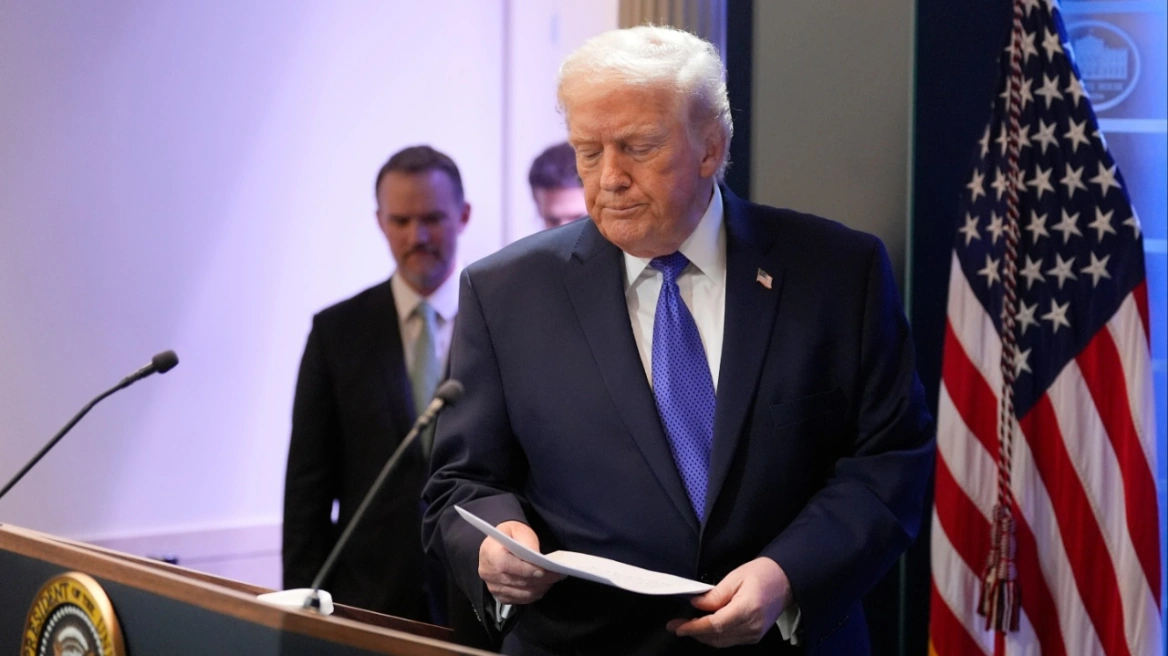According to the Ministry of Education, more than 6,043 students have been suspended for mobile phone use since the beginning of the school year.
While teachers have welcomed the new ban on mobile phones with relief, many parents have expressed strong opposition in defense of their children.
The Greek National Confederation of Parent-Teacher Associations (ASGME) agrees that phones should be kept out of the educational process but emphasizes the need for prevention over punishment.
Each day, approximately 208 students are suspended across the country. Geographically, Attica leads with more than 2,000 suspensions, followed by Central Macedonia with around 800, Crete with over 600, and Western Greece with over 350, according to the Ministry of Education.
Lower suspension numbers are recorded in the Peloponnese, Thessaly, Eastern Macedonia and Thrace, Epirus, the South Aegean, the Ionian Islands, the North Aegean, and Central Greece.
Minister of Education Kyriakos Pierrakakis expressed great satisfaction with the ban’s implementation, stating, “It has been spectacularly successful.” He added, “This measure is not only positive but necessary, and I was pleased to see that 86% of people support it, according to a poll.”
Educators and Parents Weigh In
“The fact that suspensions have surpassed 6,000 means there are many more cases,” explains the president of OLME, Mr. Nikolaos Papachristos. He clarifies, “School isn’t the military — students don’t get two days of ‘imprisonment’ for having a phone in their hand. There’s a progression of warnings before a suspension is given.”
On the other hand, Panagiotis Katifes, president of ASGME, expressed skepticism about the accuracy of the reported numbers, stating, “Suspension isn’t always the same — it depends on who was caught and whether they were really using the phone.” However, he clarified that the Confederation’s stance is that “mobile phones should not interfere with the educational process.”
The use of mobile phones in schools has caused significant issues, notes Mr. Papachristos: “There are many instances of teachers and students being ridiculed due to new technology.
Imagine a teacher turning to write on the board, and a student gestures disrespectfully while another films it and posts it online. Regarding students, mobile phones are often misused for cyberbullying or vengeful postings of personal moments.”
Parent Reactions to Suspensions
According to the president of OLME, many parents rush to defend their children when they are suspended, often justifying their actions with unreasonable arguments, such as lack of proper communication from the school. Some parents even resort to verbal attacks on teachers or school principals.
In response to claims that educators are too strict, Mr. Papachristos refutes them, stating, “If anything, we’re often too lenient.”
As for the argument that phones are necessary to keep track of children, he counters: “Students are in school between 8 a.m. and 2 p.m. Parents can always call the school if needed.”
The Need for Prevention
Mr. Katifes suggests that the current measures focus too much on punishment rather than prevention, pointing out that less than 2% of secondary school students were covered by prevention programs last year. He argues that more emphasis should be placed on prevention and the role of school psychologists and social workers in addressing the issue.
Finally, Mr. Papachristos believes that the responsibility lies with families, as young children are exposed to phones at an early age, leading to dependency.
Current Mobile Phone Rules in Greek Schools
According to the new ministerial decision:
a) Phones and other electronic devices: Students are prohibited from visibly possessing or using mobile phones or other devices with image and sound processing systems within school premises. Exceptions are made for medical applications with proper documentation.
b) Teachers: Phones must be turned off during classes and can only be used during breaks in the teachers’ lounge.
Disciplinary Measures: If a student is found using a phone, the principal is informed, and the student may be suspended for one day. For more serious violations, such as recording or photographing others without consent, the suspension can last up to five days, or even result in the student being transferred to another school.
Ask me anything
Explore related questions





